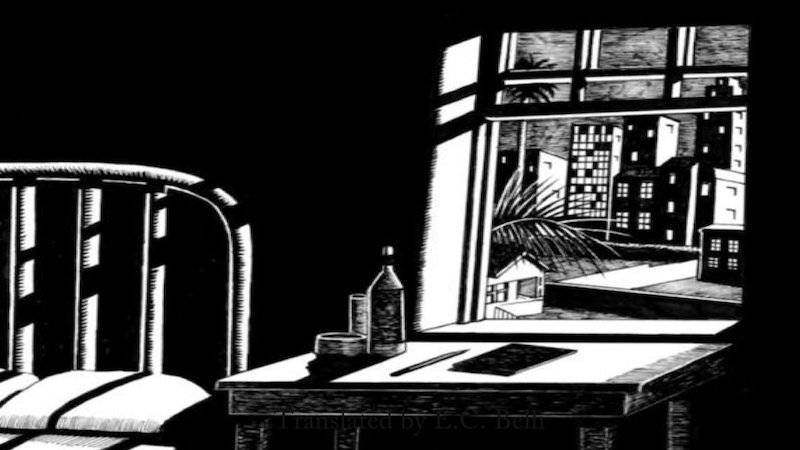TODAY: In 1928, the fourth and final section of Faulkner’s The Sound and the Fury takes place.
- “How do you construct something that stays true to its autobiographical experience, in this case, but it feels spacious?” An interview with Maggie Nelson. | The Cut
- Here was love and betrayal, competition and support: On Marlena and other recent works depicting the “dramatic potential of a long friendship.” | Vogue
- “I and mine are not lean-in women. Mine is a long and illustrious heritage of elegant survivalists and creative realists.” Ayana Mathis on the unexpected consequences of becoming a successful novelist and the legitimization of desires. | Guernica
- “That care that goes into it? I think I write for that, too. I write for the care.” An interview with Durga Chew-Bose. | Hazlitt
- A profile of poet, memoirist, and “milkmaid who is trying to vape the sun,” Patricia Lockwood. | VICE
- “Who knows what will be significant when we have moved on to whatever is waiting or not waiting?” An excerpt from Kristen Radtke’s graphic memoir, Imagine Wanting Only This. | BuzzFeed Reader
- I arrived in the Land of Witches at the end of the season of furs.” A short story by Sofia Samatar. | The Offing
- Richard didn’t need to do it, but he did: A short story by Emma Cline. | The New Yorker
- “Using the mode of writing about a nature poem rather than writing a nature poem was, at least, a cute exercise.” An interview with Tommy Pico. | Out Magazine
- “There are as many experiences of womanhood as there are women, but every woman who hears these stories has had something similar happen to her.” Moira Donegan on Rebecca Solnit’s most recent book and feminist storytelling. | The New Yorker
- He was a monument, a world of his own: On the writing of John Berger. | n+1
- “When I read her the old fairy tales about daughters without mothers, I worried that I was pushing on the bruises of her loss. When I read her the old fairy tales about stepmothers, I worried I was reading her an evil version of myself.” Leslie Jamison on becoming a stepmother. | The New York Times Magazine
- “To the extent that narrative is still with us, it seems to manifest itself via plausibility, a quality, and syntax, a quantity.” Lucy Ives on the news, trolls, and evolving story forms. | Harriet
- Deb Olin Unferth on googling “how to write a novel,” Steinian repetition, and the lifeblood of philosophy. | Electric Literature
- The Baileys Women’s Prize for Fiction shortlist has been announced. | Publishing Perspectives
Also this week on Literary Hub:
Article continues after advertisement
Eve Dunbar on Gwendolyn Brooks and disappearing black girls · How grief books by mediums harm the living (and the dead) · Why Willie Parker is an abortion doctor in the Deep South · Historian Timothy Snyder on Russia, Trump, and terrorism· Getting through grief and loss with Stevie Nicks and Elizabeth Bishop · On “The Yellow Wallpaper,” witches, and hysteria· Outrunning Eshu: On finally seeking treatment for depression · Why it took Max Winter 15 years to finish his novel· On Shakespeare, erasure, and the myth of the great solitary writer · Juan Gabriel Vásquez shares an improbable, irrational Mario Vargas Llosa story· Stephanie Powell Watts on loving The Great Gatsby and the unbearable whiteness of classic literature
The Best of Book Marks:
“Fecund, savage, and irresistible”: Gabriel García Márquez One Hundred Years of Solitude at 50 · In John A. Farrell’s new biography of our (until recently, at least) most reviled president: “The similarities between Nixon and Trump leap off the page like crickets” · Anthropological sci-fi and utopias built to last: On Ursula K. Le Guin’s The Dispossessed · Fun and games for sadomasochists: A look back at Mary Gaitskill’s 1988 debut collection, Bad Behavior · Yunior’s “unstable compound of demotic Spanish, white teen-speak and black street talk” in Junot Díaz’s Drown · A disgraced former president, a modern-day Gatsby, and a dystopian America: The best reviewed books of the week




















